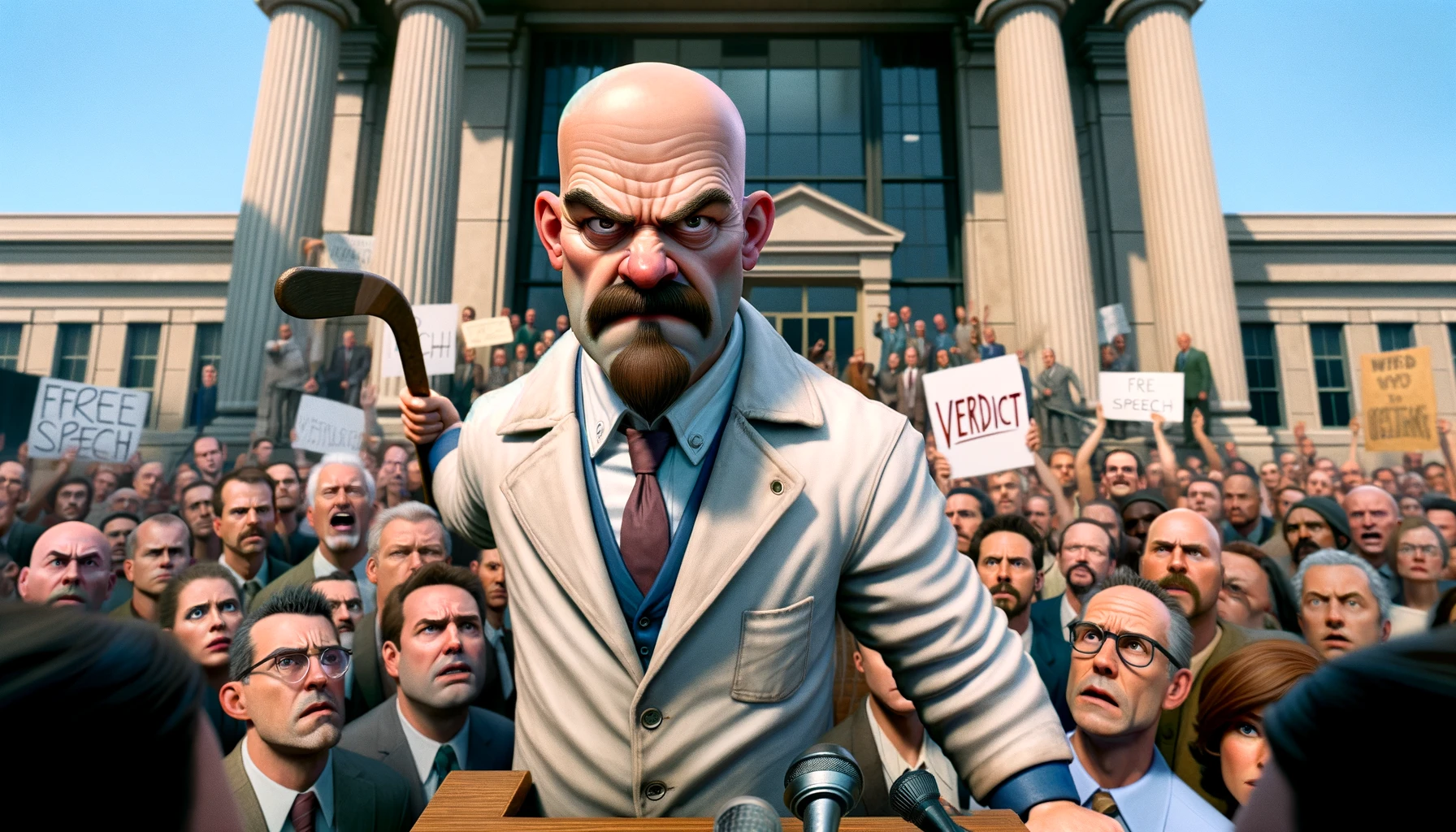
A D.C. jury found climate scientist Michael Mann was not harmed by criticism that Penn State had whitewashed its investigation of his provocative “hockey stick” graph, which used proxy data such as tree rings to depict global temperatures holding steady for hundreds of years before spiking sharply in the 1800s. The jury awarded only $1 in compensatory damages—but over $1 million in punitive damages against two of Mann’s critics, engineer-blogger Rand Simberg and journalist Mark Steyn.
Simberg and Steyn had noted that Penn State’s investigation had been led at the top by university president Graham Spanier, who is now incarcerated for covering up for the university’s star coach and serial child-molester Jerry Sandusky. Simberg wrote:
“We saw what the university administration was willing to do to cover up heinous crimes, and even let them continue, rather than expose them. Should we suppose, in light of what we now know, they would do any less to hide academic and scientific misconduct, with so much at stake? It's time for a fresh, truly independent investigation….Mann could be said to be the Jerry Sandusky of climate science, except that instead of molesting children, he has molested and tortured data in service of politicized science that could have dire consequences for the nation and planet.”
The jury found that statement to be defamatory, and assessed punitive damages against Simberg in the amount of $1,000.
Steyn quoted Simberg’s blog post, and then added:
"Michael Mann was the man behind the fraudulent climate change Hockey Stick graph, the very ringmaster of the tree-ring circus.”
The jury hit Steyn with punitive damages 1,000 times that of Simberg’s at $1 million.
I had predicted that Mann would lose. And not just because he was not harmed. The bigger problem in Mann’s case is that Simberg and Steyn did not commit defamation. For that, the jury needed to find that the defendants’ statements against Mann, a public figure, were not only false but were knowingly or recklessly false. So when Prof. Abraham Wyner gave his expert statistical opinion about the provocative way that Mann chose to represent his data, opining that Mann’s graph was “misleading,” I thought it was game over for Mann’s case.
I still predict Mann will lose. Dr. Mann, when asked by other scientists, was not forthcoming with his data. He referred to the investigation into his research as the university “cover[ing] its a$$” [using dollar signs]. There were many ways of interpreting the data, only one of which was a pronounced “hockey stick.” There was no evidence that Steyn ever harbored doubts about his criticisms. And most important, if a reputable statistician—employed at Mann’s own university—could conclude that the hockey stick was “misleading,” then a journalist cannot be liable for defamation for saying the same thing (even with embellishments for color).
You might object: Perhaps the jury did not find Prof. Wyner credible? Certainly the jury is entitled to reject his conclusion that Mann’s hockey stick is “misleading.” But that is not the standard. Remember, Prof. Wyner was put on by the defense to establish that one could make a non-reckless charge that Mann’s hockey stick was “fraudulent.” Prof. Wyner was qualified as an expert, which means the jury was entitled to credit his opinions as credible. Whether or not the jury accepted the conclusions as true, the jury could not gainsay the judge’s ruling that Prof. Wyner’s conclusions may be accepted as true—such as by the defendants in their publications.
And if Prof. Wyner was not credible, then the trial court erred when it arbitrarily limited defendants to a single expert.
So Simberg and Steyn’s sincere criticisms, corroborated by an expert, were not reckless. There was no defamation.
As I said before, I believe the judge was uncomfortable with this case, in which both sides were attempting to adjudicate claims of global—and indeed existential—significance. The judge would not want to decide the case as a matter of law for that very reason, and preferred to leave it to the jury. But now the jury has handed in its verdict, I doubt the judge would be happy to learn Mann is already taking to social media making statements like this:
"I hope this verdict sends a message that falsely attacking climate scientists is not protected speech."
Mann’s characterization suggests that the D.C. court has weighed the merits of Dr. Mann’s and Prof. Wyner’s scientific claims, found Mann’s to be true and Wyner’s to be false, and has set a precedent that all Wyner-ites are now exposed to liability. (Perhaps even my quoting Prof. Wyner’s conclusion that the hockey stick is “misleading,” in Mann’s characterization of the outcome, may be actionable defamation.) That is deeply chilling to free discourse and to First Amendment rights.
And what about the punitives multiplier? Under BMW v. Gore, 517 U.S. 559, an award of punitive damages greater than a single-digit multiplier of compensatory damages is presumptively unconstitutional. Here, nine times the one dollar in compensatory damages would be $9, and $1 million obviously is way more than that. True, subsequent cases have applied the rule differently to nominal damages, such that punitive damages awards have been affirmed in the ballpark of tens of thousands of dollars. But not in the hundreds of thousands.
So I maintain my prediction that Mann will lose. Criticism of scientists who are public figures is not legally actionable defamation where the criticism is both sincere and supported by an expert.